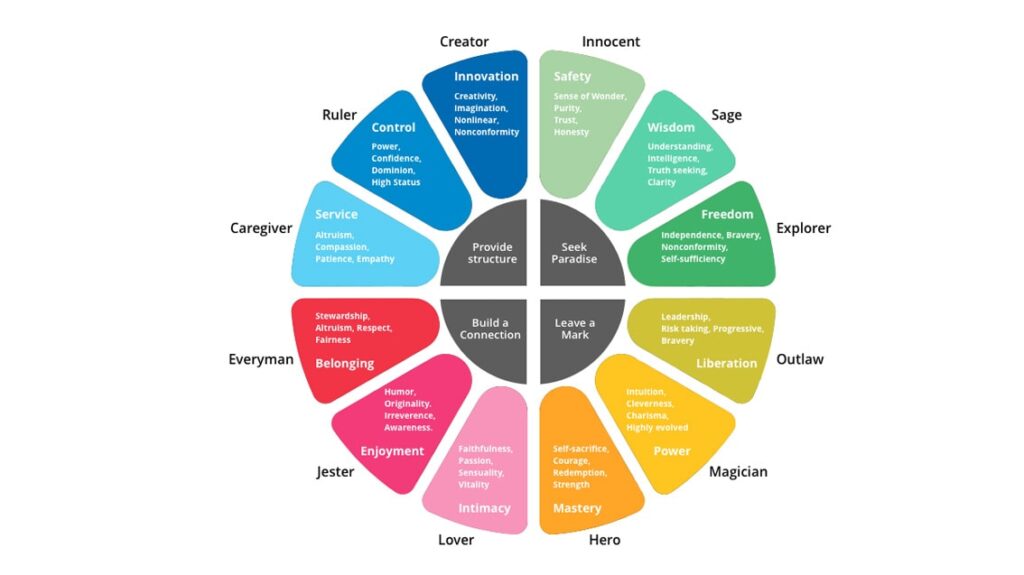Character is one of the most fascinating and multi-layered parts of people. It shapes our thought processes, feelings, and acts, giving us a remarkable character in the social scene. However, we may not necessarily acknowledge it; our character impacts our associations, choices, and impressions of our general surroundings. This article digs into the importance and meaning of character, investigates the various sorts, and examines the elements that add to its turn of events.

Significance and Meaning of Character
Character can be characterized as the amount of attributes, qualities, and examples of thoughts, feelings, and ways of behaving that distinguish one person from another. All in all, the assortment of inside and outside characteristics make an individual’s unmistakable personality. While character remains generally stable throughout life, it can, in any case, develop with new encounters and conditions.
An exhaustive comprehension of character requires recognizing that it is both natural and social. A few parts of our character are acquired through hereditary qualities, while our current circumstances and valuable encounters impact others. Therapists concentrate on character to order people and more readily comprehend how people are capable and why they act in some ways.
Sorts of Character
Analysts have grouped characters into different classes over the long haul. One of the most well-known arrangements is qualification between thoughtful people, social butterflies, and ambiverts. These sorts reflect how individuals draw in with the outside world, their social propensities, and their interior manners of thinking.
Thoughtful person
Self-observers are people who will generally be more held and intelligent. They frequently find social cooperation depleting, particularly in huge gatherings or new settings. Thoughtful people are normally empowered by investing energy alone or in quiet, calm conditions. They appreciate single exercises like perusing, composing, or innovative pursuits that permit them to think profoundly and re-energize their psychological and close-to-home energy.
As opposed to prevalent thinking, introspection isn’t inseparable from bashfulness. While certain contemplative people may be modest, many are sure that they lean toward thoughtful exercises over mingling. They flourish when they can participate in significant one-on-one discussions instead of casual conversation.
Social butterfly
Social butterflies, then again, are described by their active and social nature. They are frequently stimulated by associating with others, whether in little gatherings or huge social occasions. Social butterflies regularly appreciate being the focal point of consideration and are bound to search out new encounters and experiences. They are more disposed to articulate their thoughts straightforwardly and track fulfillment in outer boosts, like get-togethers, gatherings, and gathering exercises.
For outgoing people, depression or detachment can feel especially awkward. They flourish where they can keep up with dynamic public activities and are frequently seen as sure, energetic, and talkative.
Ambivert
Ambiverts are the people who fall some in the middle among loners and social butterflies. They can show attributes of both relying upon the circumstance. Ambiverts are adaptable in their social behavior and equipped for getting a charge out of isolation and mingling. They are similarly happy with being in a group or investing energy alone. Along these lines, ambiverts are often considered the most versatile character type.
Ambiverts can adjust their requirements for both collaboration and reflection. In certain circumstances, they might act like outgoing individuals, searching out friendly connections and being cordial. In different occurrences, they might incline in the direction of self-preoccupation, settling on calm reflection and alone time. This fair methodology makes ambiverts successful communicators and mediators.

Factors Influencing Character
While individuals might have a characteristic tendency toward a particular character type, a few outer and inward factors impact character improvement over the long run. These elements shape how people respond to the world and others, adding intricacy and profundity to their character. The following are the key factors that add to character improvement:
Heredity
Heredity assumes an urgent part in deciding a singular’s character. It alludes to the hereditary attributes passed down from guardians to their posterity. An individual’s personality — whether normally quiet, forceful, thoughtful, or outgoing — might be impacted by their hereditary cosmetics. While heredity doesn’t inflexibly characterize one’s character, it gives an establishment after which natural impacts can fabricate.
For example, if a kid acquires qualities related to elevated degrees of friendliness, they could normally incline toward extroversion. Nonetheless, these hereditary inclinations can be formed by different elements, for example, childhood and valuable encounters.
Family Foundation
Family plays a huge part in molding character, particularly during the early stages. How a kid is raised, the qualities bestowed by guardians, and the close-to-home climate inside the family all impact character improvement. A sustaining and steady family can assist with building certainty, profound versatility, and a positive mental self-view. Then again, a useless or careless family climate might add to issues like low confidence or tension.
The mentalities and ways of behaving displayed by guardians and kin frequently act as layouts for how people collaborate with others in a more extensive society. For instance, a kid brought up in a warm and open family might foster a more open and cordial character contrasted with a kid brought up in a family portrayed by struggle and close-to-home distance.
Nature of Individuals with Whom We Cooperate
Individuals we routinely interface with likewise significantly affect our character. Our companions, associates, and, surprisingly, relaxed colleagues can shape our qualities, mentalities, and ways of behaving. Peer gatherings, particularly during youth, frequently impact how people see themselves and others. Positive social communications can assist individuals with creating attributes like compassion, receptiveness, and dependability, while negative collaborations could build up qualities like hostility or skepticism.
The social learning hypothesis recommends that people learn ways of behaving and standards by noticing and impersonating individuals around them. Like this, the idea of these collaborations can either uphold or ruin positive character improvement.
Climate
The climate wherein an individual lives — physical and social — impacts their character. The way of life, customs, and cultural standards that encompass a singular assistance shape their perspective and conduct inclinations. For example, somebody brought up in a collectivist culture, where local area and congruity are focused, may foster character qualities like participation and lowliness. Conversely, somebody in an individualistic culture might esteem autonomy and emphaticness.
Besides, the financial climate likewise assumes a part in character improvement. People experiencing childhood in destitution might foster flexibility or, alternately, may encounter uneasiness or sadness because of the difficulties they face. Additionally, those brought up in additional wealthy conditions might foster certainty or qualification in light of their encounters of honor.
Circumstances
Explicit circumstances or occasions can set off changes in an individual’s character, particularly during seasons of pressure, progress, or individual emergencies. Situational factors include:
Losing a friend or family member.
Encountering a significant life-altering event.
Experiencing injury.
These occasions can make people reconsider their convictions, values, and, surprisingly, social inclinations.
For instance, withdrawn people may become seriously cordial and social after moving to another city and making new companions. A social butterfly might be more held after encountering a significant misfortune or difficulty. Over the long run, rehashed openness to specific circumstances can prompt enduring changes in character.
For more conditions, logic, stay connected with Personality Trail

